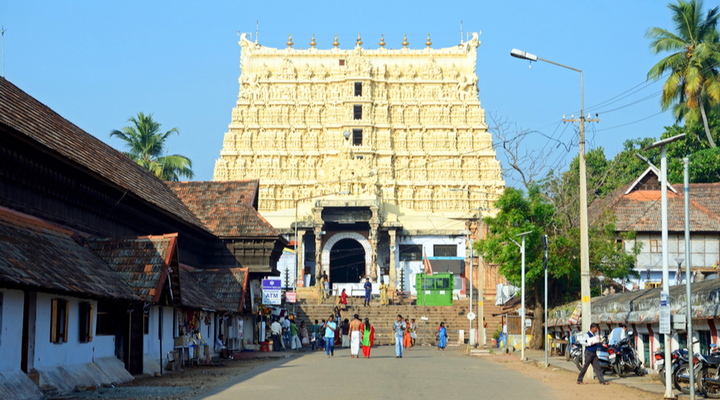The Supreme Court on Monday set aside the 2011 verdict of the Kerala High Court which had directed the state government to set up a trust to take control of management and assets of the historic Sree Padmanabhaswamy Temple in Kerala.
The apex court upheld the rights of the Travancore royal family in the administration of Sree Padmanabhaswamy Temple, which is considered one of the richest temples in the country.
A bench headed by Justice U.U. Lalit said that as an interim measure, the district judge of Thiruvananthapuram will head an administrative committee to manage the affairs of the temple.
The top court delivered the verdict on a batch of appeals, including the one filed by the legal representatives of the Travancore royal family, challenging the January 31, 2011 verdict of the high court in the matter.
The sprawling temple, an architectural splendour in granite, was rebuilt in its present form in the 18th century by the Travancore Royal House, which had ruled southern Kerala and some adjoining parts of Tamil Nadu before integration of the princely state with the Indian Union in 1947.
While pronouncing the judgement, the apex court held that the death of earlier ruler of the Travancore royal family does not affect the right of 'Shebaitship' (the right to manage the deity and the temple as a priest) of Marthanda Varma, the brother of the last ruler of the royal family, and his legal heirs.
The top court said that the death of the last ruler of the royal family does not entitle the state government to take over the management of committee as law of escheat does not apply in this case and the management of the temple continues to be vested in the trust of the ruler of Travancore.
While making an interim arrangement to manage the affairs of the temple, the apex court said that it will remain in force till a fresh committee is set up and all the members of the committee must be Hindus.
The controversy over the administration and management of the historic temple was pending in the apex court for the last nine years in the wake of charges of alleged financial irregularities.
Even after India's independence, the temple continued to be governed by a trust controlled by the erstwhile royal family for whom Lord Padmanabha (Vishnu) is their family deity.
The top court had on April 10 last year reserved its judgement on the appeals against the high court's verdict.
The high court had directed the state government to take steps to set up a body or trust to take control of the temple, its assets and management and to run the temple in accordance with the traditions.
It had on May 2, 2011, stayed the high court's direction regarding taking over of the assets and management of the temple.
The top court had also directed that there shall be a detailed inventory of the articles, valuables, ornaments in 'kallaras' (vaults)
On July 8, 2011, the apex court had said that "opening of kallara 'B' is to be kept in abeyance till further orders".
In July 2017, the apex court had said it would examine the claims that one of the vaults of the temple contained extraordinary treasure with "mystical" energy.
It had passed a slew of directions, including on the security of the treasures, auditing of accounts and repair of the deity.
The top court was in July 2017 told by senior advocate Gopal Subramanium, who is assisting the court as an amicus curiae in the matter, that 'kallara' (vault) B of the temple should be opened as it was closed "on the apprehension that there is some mystical energy".
 Thursday, 26 December 2024
Thursday, 26 December 2024










